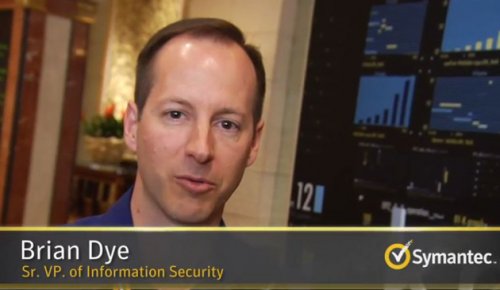Symantec: AntiVirus Is Dead
Symantec, the antivirus pioneer, was the company that first came up with an idea and its implementation of anti-virus software. 25 years later, the company’s Vice-President Brian Dye says “anti-virus is dead.”
According to Brian Dye, Symantec no longer relies on traditional anti-virus software as the one with profit potential, alas. Modern anti-virus suites are capable of detecting no more that 45% of threats, a staggering statistic. Hackers can get access to users’ and companies’ computers bypassing anti-virus software, so Dye’s objective within the company is to reinvent the computer protection altogether.
Other companies in the industry have already started offering their business clients strategies that include identifying the already existing malicious codes in the system and eliminating or minimizing the damage. FireEye, for example, suggests companies place intentionally wrongful, but seemingly important information on the surface to distract the perpetrators, giving the anti-malware protection systems more time to identify the suspicious programs. In fact, the Target company was warned by FireEye of the suspicious activities within the system some time before the major data breach happened during the Christmas season, when millions of credit card data have been stolen. Target’s ex-employees say the company’s IT department simply did not have enough human resources to follow up on every threat, so they simply chose to ignore it.
Now, Symantec follows in the footsteps of other companies like Juniper Networks, Shape Security and FireEye, offering its business clients a new breed of product – Symantec own special-ops team for emergency cases, briefing the companies’ about the real threats to their cybersecurity.
Additionally, Symantec is developing a new generation of computer protection software capable of detecting malware according to its behavior, rather than signature, thus weeding out the malware that already penetrated the network.
Image Source: www.itespresso.de
This all sounds very exciting to the business clients, but what does this mean to us, the regular individual users? As far as Symantec is concerned, over 40% of its revenue comes from Norton antivirus and other security products designed for individual users, while its business products account for less than one fifth of its total revenue. In the light of the recent revenue drop revealed by the company, Mr.Dye’s statement about the company not relying on traditional antivirus as a revenue generating product sounds odd.
Considering the fact that there is usually a 2-3 year lag between the generation of the ideas and their final release as a product ready for prime time, Symantec is surely not abandoning its individual users. Nevertheless, it is a situation we need to consider seriously.
Will cybersecurity companies sell the special ops briefing services to regular, non-business users? Yes. In fact, some companies already do – Comodo has an accessible monthly plan called GeekBuddy, which gives you a dedicated personal assistant should you encounter any antivirus issues with your PC. Nevertheless, the predominant majority of individual users use free or mid-range antivirus suites, and they are simply not ready to cash out some $70 for emergency cases that may never happen, or can be resolved via dedicated forums and a lot of reading and self-education. At least, not ready yet.
Cybersecurity companies have yet to come up with a way to counter-act against the rising proficiency and ingenuity of the Chinese, Iranian, Ukrainian and Russian hackers that make a lot of noise penetrating the Western governmental and banking systems. If there was an antivirus suite crafted by some of these geeks on sale, it would probably be the one really worth buying.

